December 7 stands as one of history’s most eventful days, witnessing the rise and fall of empires, groundbreaking discoveries, and moments that shaped our modern world across centuries of human achievement.
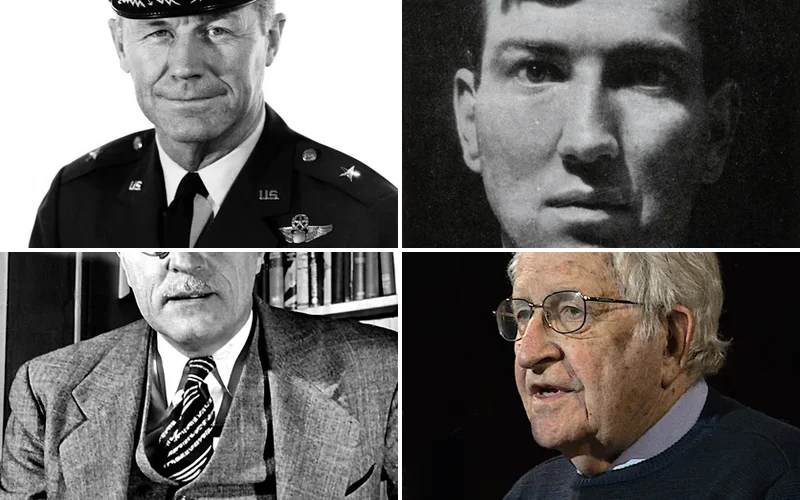
Politics and Government Events on December 7
1922 – Parliament of Northern Ireland Votes to Remain in United Kingdom
The Parliament of Northern Ireland made the historic decision to remain part of the United Kingdom rather than unify with Southern Ireland. This vote solidified the partition of Ireland and established the constitutional framework that would define Northern Ireland’s political status for generations.
The decision reflected deep sectarian and political divisions within Irish society. The vote’s outcome set the stage for decades of constitutional debate and conflict in Northern Ireland.
1949 – Republic of China Government Relocates to Taiwan
The Government of the Republic of China completed its dramatic retreat from mainland China, moving from Nanjing to Taipei, Taiwan. This relocation marked the effective end of Nationalist control over mainland China during the Chinese Civil War.
The move established Taiwan as the seat of the Republic of China government. This political transformation created the foundation for the modern Taiwan-China relationship that continues to influence regional geopolitics.
1962 – Monaco’s Constitutional Reform
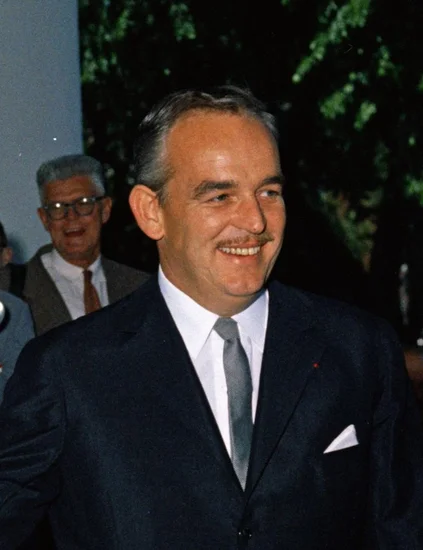
Prince Rainier III of Monaco implemented significant constitutional changes that devolved portions of his absolute power to advisory and legislative councils. The reforms modernized Monaco’s governance structure while maintaining the principality’s monarchical system.
These changes reflected broader democratic movements across Europe during the 1960s. The constitutional revision balanced traditional royal authority with contemporary governance expectations.
1971 – Pakistan Coalition Government Formation
President Yahya Khan announced the formation of a coalition government with Nurul Amin as Prime Minister and Zulfikar Ali Bhutto as Deputy Prime Minister. This political arrangement attempted to address the growing crisis in East Pakistan during the Bangladesh Liberation War.
The coalition represented a last-ditch effort to maintain Pakistani unity. However, the arrangement proved insufficient to prevent the eventual creation of Bangladesh.
2003 – Conservative Party of Canada Registration
The Conservative Party of Canada officially registered following the merger of the Canadian Alliance and Progressive Conservative Party of Canada. This political unification created a stronger conservative opposition to the Liberal Party.
The merger ended years of vote-splitting on Canada’s political right. The new party would eventually form government under Stephen Harper, demonstrating the merger’s strategic success.
Military and Naval History on December 7
1904 – Royal Navy Fuel Oil Trials Begin
The Royal Navy commenced comparative fuel trials between HMS Spiteful and HMS Peterel, with Spiteful becoming the first warship powered solely by fuel oil. These groundbreaking trials revolutionized naval propulsion technology and led to coal’s obsolescence in modern warships.
The trials demonstrated fuel oil’s superior efficiency and operational advantages over coal. This technological advancement gave the Royal Navy a significant edge in naval warfare and influenced maritime powers worldwide.
1917 – United States Declares War on Austria-Hungary
The United States formally declared war on Austria-Hungary, expanding American involvement in World War I beyond its previous declaration against Germany. This decision brought the United States into direct conflict with the entire Central Powers alliance.
The declaration completed America’s entry into the European conflict on all fronts. Congress’s decision reflected growing American commitment to supporting the Allied cause and ensuring victory in the Great War.
1941 – Attack on Pearl Harbor
The Imperial Japanese Navy launched a devastating surprise attack on the United States Pacific Fleet at Pearl Harbor, Hawaii, killing over 2,400 Americans and crippling the Pacific Fleet. This “date which will live in infamy” brought the United States into World War II.
The attack destroyed or damaged 18 American warships and over 300 aircraft. President Franklin D. Roosevelt’s subsequent declaration of war unified American public opinion and transformed the United States into the “Arsenal of Democracy.”
1942 – Operation Frankton Commando Raid
British commandos executed Operation Frankton, a daring raid on German shipping in Bordeaux harbour using canoes and limpet mines. The mission, though costly in human lives, successfully damaged several German vessels and demonstrated Allied special operations capabilities.
Only two of the ten commandos survived the mission, but their courage inspired future special operations. The raid proved that Allied forces could strike deep into Nazi-occupied territory despite overwhelming German defenses.
1971 – Battle of Sylhet
The Battle of Sylhet erupted between Pakistani military forces and the Indian Army during the Bangladesh Liberation War. This engagement formed part of the broader Indo-Pakistani War that would lead to Bangladesh’s independence.
The battle demonstrated Indian military support for Bengali independence forces. The conflict’s outcome contributed to Pakistan’s eventual surrender and the birth of Bangladesh as an independent nation.
Science and Discovery Milestones on December 7
1932 – Einstein Receives American Visa
German-born physicist Albert Einstein received an American visa, facilitating his permanent relocation to the United States. This immigration would prove crucial for both Einstein’s safety and American scientific advancement during the Nazi era.
Einstein’s arrival in America strengthened the nation’s scientific community immeasurably. His presence helped establish the United States as a global leader in theoretical physics and scientific research.
1972 – Apollo 17 Launch and Blue Marble Photography
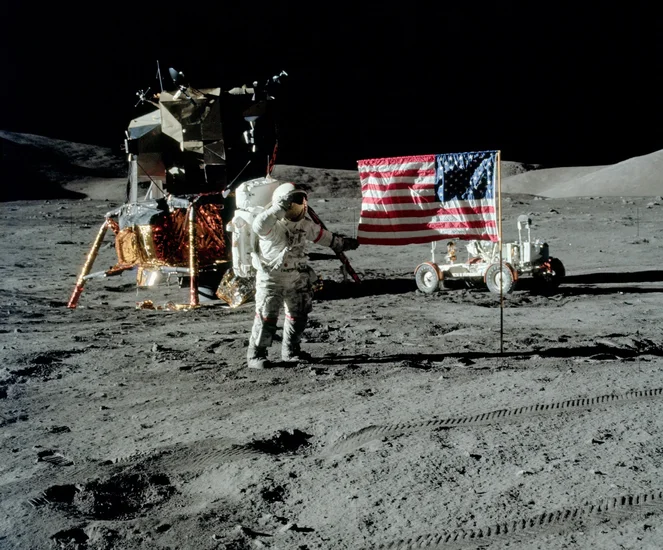
Apollo 17, NASA’s final Apollo Moon mission, launched with a crew that captured the iconic “Blue Marble” photograph of Earth. This image became one of the most reproduced photographs in history and symbolized humanity’s environmental awareness.
The mission represented the culmination of the Apollo program’s achievements. The Blue Marble photograph profoundly influenced the environmental movement by showing Earth’s fragility and beauty from space.
1995 – Galileo Spacecraft Arrives at Jupiter

The Galileo spacecraft successfully reached Jupiter after a six-year journey from Earth, launched by Space Shuttle Atlantis during Mission STS-34. This arrival marked the beginning of an unprecedented scientific study of the giant planet and its moons.
Galileo’s mission revolutionized understanding of Jupiter’s atmospheric composition and moon systems. The spacecraft’s discoveries about Europa’s subsurface ocean transformed theories about potential life in the solar system.
2015 – Akatsuki Probe Enters Venus Orbit
The Japanese Space Agency’s Akatsuki probe successfully entered orbit around Venus, five years after its initial attempt failed. This achievement represented a remarkable recovery and demonstrated advanced spacecraft engineering capabilities.
The mission’s success proved that failed space missions could be salvaged through persistence and innovation. Akatsuki’s observations provided crucial data about Venus’s extreme atmospheric conditions and climate dynamics.
Cultural and Arts Events on December 7
1930 – First Television Advertisement in America
Boston’s W1XAV television station broadcast video from the CBS radio orchestra program “The Fox Trappers,” which included the first television advertisement in United States history for I.J. Fox Furriers. This milestone marked the beginning of commercial television broadcasting in America.
The advertisement revolutionized both broadcasting and marketing industries. This historic broadcast demonstrated television’s commercial potential and established the foundation for modern advertising-supported television programming.
1963 – Television Instant Replay Debuts
Instant replay technology made its historic debut during the Army-Navy football game in Philadelphia, Pennsylvania. This innovation transformed sports broadcasting by allowing viewers to see crucial plays repeated immediately.
The technology revolutionized sports viewing experiences for millions of fans. Instant replay became an essential element of sports broadcasting and later influenced officiating decisions across numerous sports.
1965 – Catholic-Orthodox Reconciliation
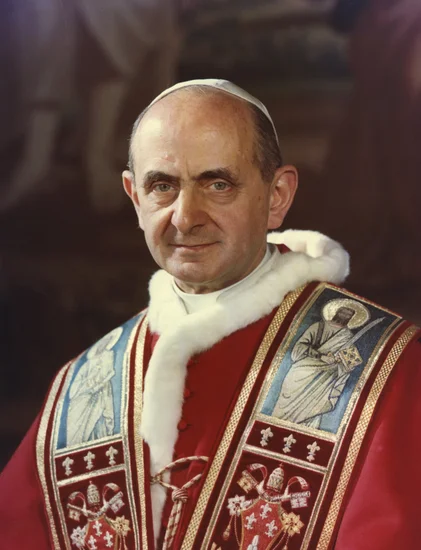
Pope Paul VI and Patriarch Athenagoras I simultaneously revoked mutual excommunications that had divided Eastern and Western Christianity since 1054. This historic gesture marked the beginning of improved relations between Catholic and Orthodox churches.
The reconciliation ended over 900 years of formal separation between Christianity’s largest denominations. This breakthrough paved the way for ongoing ecumenical dialogue and cooperation between Catholic and Orthodox communities worldwide.
Religious and Social Events on December 7
1982 – First Lethal Injection Execution
Charles Brooks Jr. became the first person executed by lethal injection in the United States, marking a significant shift in capital punishment methods. This execution in Texas introduced what proponents claimed was a more humane method of carrying out death sentences.
The procedure replaced electric chairs, gas chambers, and other execution methods in many states. This change sparked ongoing debates about capital punishment ethics and the definition of humane execution methods.
1993 – Long Island Rail Road Shooting

Colin Ferguson opened fire on passengers aboard the Long Island Rail Road in Nassau County, New York, killing six people and injuring 19 others. This tragic mass shooting highlighted growing concerns about gun violence and public safety.
The incident led to significant changes in gun control advocacy and public transportation security. The shooting’s aftermath demonstrated both the devastating impact of gun violence and the resilience of affected communities.
2017 – Aztec High School Shooting

Former student William Atchison opened fire at Aztec High School, killing two people before taking his own life. This tragedy added to the growing list of school shootings that have plagued American education.
The shooting prompted renewed discussions about school security and mental health resources. The community’s response demonstrated the ongoing challenges schools face in preventing and responding to violence.
Business and Economic Events on December 7
1946 – Winecoff Hotel Fire
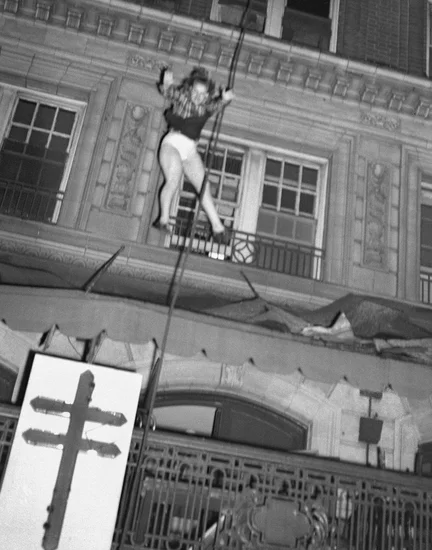
A devastating fire at the Winecoff Hotel in Atlanta, Georgia, killed 119 people in what became the deadliest hotel fire in United States history. The tragedy exposed serious deficiencies in hotel fire safety regulations and building codes.
The disaster led to comprehensive reforms in hotel safety standards nationwide. New fire safety regulations and building codes implemented after this tragedy saved countless lives in subsequent decades.
1982 – Senior Road Tower Collapse
The Senior Road Tower collapsed in less than 17 seconds, killing five workers on the tower and injuring three workers in a nearby building. This structural failure highlighted critical safety issues in construction and engineering practices.
The collapse prompted investigations into construction safety standards and building inspection procedures. The incident led to improved safety protocols and more rigorous oversight of construction projects.
1983 – Madrid Airport Collision
An Iberia Airlines Boeing 727 collided with an Aviaco DC-9 in dense fog while taxiing at Madrid–Barajas Airport, killing 93 people. This tragic accident highlighted the dangers of ground operations in poor weather conditions.
The collision led to improved ground control systems and better communication protocols at airports worldwide. Enhanced radar systems and taxiway lighting became standard safety features following this disaster.
Transportation and Infrastructure on December 7
1944 – Wakayama Earthquake and Tsunami
A powerful earthquake struck the coast of Wakayama Prefecture in Japan, generating a devastating tsunami that killed 1,223 people. This natural disaster demonstrated the deadly power of seismic events and their secondary effects.
The disaster led to improved earthquake monitoring and tsunami warning systems in Japan. The tragedy contributed to Japan’s development of world-leading seismic safety technology and disaster preparedness protocols.
1987 – Pacific Southwest Airlines Flight 1771 Crash

Pacific Southwest Airlines Flight 1771 crashed near Paso Robles, California, killing all 43 people aboard after a disgruntled passenger shot his ex-boss, then both pilots, before steering the plane into the ground. This unprecedented act of workplace violence aboard an aircraft shocked the aviation industry.
The incident led to enhanced airport security screening procedures and background checks for airline employees. The tragedy highlighted vulnerabilities in aviation security and prompted comprehensive reforms in passenger and employee screening protocols.
1995 – Multiple Aviation Disasters
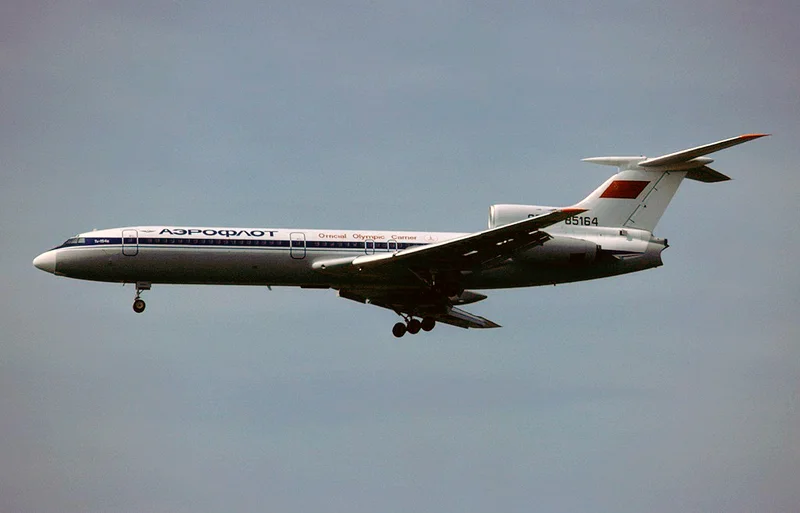
Khabarovsk United Air Group Flight 3949 crashed into the Bo-Dzhausa Mountain, killing all 98 people aboard. This disaster highlighted ongoing safety challenges in Russian aviation during the post-Soviet transition period.
The accident prompted investigations into maintenance standards and pilot training procedures. The tragedy demonstrated the need for improved safety oversight in former Soviet republics’ aviation industries.
2016 – Pakistan International Airlines Flight 661 Crash

Pakistan International Airlines Flight 661 crashed near Havelian while flying from Chitral to Islamabad, killing all 47 people aboard the ATR-42-500 aircraft. The disaster highlighted ongoing safety challenges in Pakistan’s aviation sector.
The crash led to enhanced maintenance protocols and pilot training requirements. The tragedy prompted Pakistani authorities to implement stricter safety oversight and international cooperation in aviation safety.
Sports and Recreation on December 7
1936 – Jack Fingleton’s Cricket Record

Australian cricketer Jack Fingleton became the first player in Test cricket history to score centuries in four consecutive innings. This remarkable achievement established a batting record that demonstrated exceptional skill and consistency.
Fingleton’s record stood as a testament to his exceptional batting ability and mental toughness. His achievement inspired generations of cricketers and remains one of the sport’s most impressive individual accomplishments.
2005 – Air Marshal Incident at Miami Airport

Rigoberto Alpizar, a passenger on American Airlines Flight 924 who allegedly claimed to have a bomb, was shot and killed by federal air marshals at Miami International Airport. This incident highlighted the heightened security measures implemented after September 11, 2001.
The shooting raised questions about air marshal protocols and mental health awareness. The tragedy demonstrated the complex challenges of balancing aviation security with passenger safety and civil liberties.
2024 – Syrian Opposition Advance on Damascus
Syrian opposition forces entered the Rif Dimashq Governorate during the Battle of Damascus, advancing to within 20 kilometers of the capital. This military development marked a significant escalation in the ongoing Syrian conflict.
The advance represented the closest opposition forces had come to Damascus in years. The military action demonstrated the continuing instability and complexity of the Syrian civil war.
Notable Births on December 7
1928 – Noam Chomsky Born
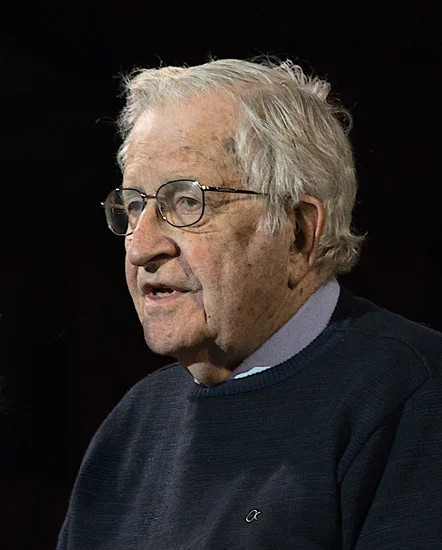
American linguist and philosopher Noam Chomsky was born, destined to become one of the most influential intellectuals of the 20th century. His groundbreaking work in linguistics revolutionized understanding of human language acquisition and cognitive development.
Chomsky’s theories of transformational grammar fundamentally changed linguistic science. His political activism and social commentary established him as a prominent voice in American intellectual discourse for decades.
1956 – Larry Bird Born

American basketball legend Larry Bird was born, future star of the Boston Celtics and one of the greatest players in NBA history. His exceptional shooting ability and competitive spirit would define an era of professional basketball.
Bird’s rivalry with Magic Johnson revitalized the NBA during the 1980s. His three NBA championships and numerous individual awards cemented his status as one of basketball’s all-time greats.
1963 – Tom Waits Born

American singer-songwriter Tom Waits was born, destined to become one of music’s most distinctive and influential artists. His gravelly voice and experimental approach to songwriting would influence countless musicians across multiple genres.
Waits’ unique blend of blues, jazz, and avant-garde music created a completely original artistic vision. His theatrical performances and poetic lyrics established him as a true American original in popular music.
1969 – Johnny Bench Born

American baseball catcher Johnny Bench was born, future cornerstone of the Cincinnati Reds’ “Big Red Machine.” His exceptional defensive skills and powerful hitting would revolutionize the catcher position.
Bench’s career included two World Series championships and numerous individual honors. His innovations in catching technique and equipment influenced generations of players at the position.
1988 – Emily Browning Born

Australian actress Emily Browning was born, destined to become an international film star. Her breakthrough performances in Australian cinema led to prominent roles in Hollywood productions.
Browning’s versatility as an actress enabled her to succeed in both dramatic and fantasy genres. Her international career demonstrated the global appeal of Australian talent in contemporary cinema.
Notable Deaths on December 7
1941 – Pearl Harbor Attack Casualties
The attack on Pearl Harbor claimed numerous American military personnel, including Admiral Isaac C. Kidd, Captain Mervyn S. Bennion, and Captain Franklin Van Valkenburgh. These brave servicemen died defending their ships and crews during the surprise attack.
Their sacrifice symbolized American military valor and commitment to duty. The casualties at Pearl Harbor became symbols of American resolve and the ultimate price of freedom during World War II.
1975 – Thornton Wilder Dies
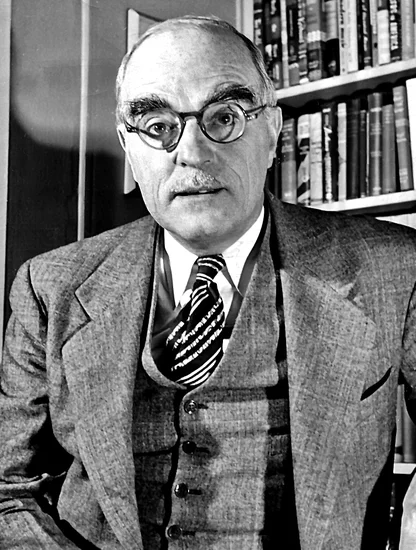
American novelist and playwright Thornton Wilder passed away, leaving behind a legacy of literary excellence including “Our Town” and “The Bridge of San Luis Rey.” His works explored universal themes of human experience and small-town American life.
Wilder’s plays and novels earned him three Pulitzer Prizes and international recognition. His writing continues to influence American literature and theater, particularly his innovations in theatrical staging and narrative structure.
1985 – Robert Graves Dies

English poet, novelist, and critic Robert Graves died, concluding a remarkable literary career spanning much of the 20th century. His works included “I, Claudius” and numerous volumes of poetry that explored classical themes and modern experiences.
Graves’ historical novels brought ancient Rome to vivid life for modern readers. His poetry and criticism influenced generations of writers and established him as a major figure in English literature.
2020 – Chuck Yeager Dies
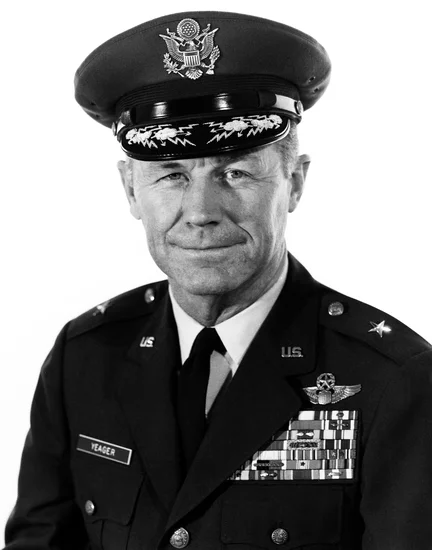
American test pilot Chuck Yeager passed away, ending the life of the first person to break the sound barrier in level flight. His courage and skill as a test pilot advanced aviation technology and inspired generations of pilots.
Yeager’s achievement in the Bell X-1 aircraft marked a crucial milestone in aviation history. His subsequent career as a test pilot and military officer established him as an American hero and aviation pioneer.
2023 – Benjamin Zephaniah Dies

British writer and dub poet Benjamin Zephaniah died, concluding a career dedicated to social justice and artistic expression. His poetry and novels addressed racism, equality, and human rights with passion and eloquence.
Zephaniah’s work bridged different communities and generations through his accessible style and powerful messages. His contributions to British literature and social activism influenced countless writers and activists.
Holidays and Observances on December 7
Armed Forces Flag Day
India observes Armed Forces Flag Day to honor the nation’s military personnel and collect funds for the welfare of armed forces families. Citizens across India participate in flag sales and ceremonies recognizing military service and sacrifice.
The observance demonstrates national gratitude for military service and support for veterans’ welfare. Communities throughout India organize events to raise awareness about armed forces contributions to national security.
National Pearl Harbor Remembrance Day
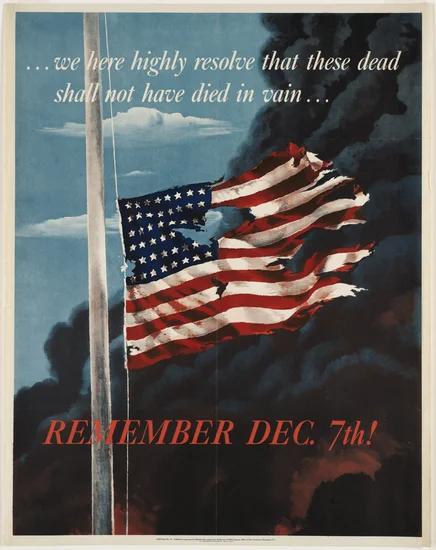
The United States observes National Pearl Harbor Remembrance Day to honor the 2,400 Americans killed in the 1941 attack. Veterans’ organizations and communities across America hold ceremonies remembering the “date which will live in infamy.”
The observance serves as a reminder of the importance of military preparedness and national unity. Memorial services and educational programs help ensure that future generations understand this pivotal moment in American history.
International Civil Aviation Day

The International Civil Aviation Organization sponsors this global observance celebrating achievements in international flight and cooperation. Aviation organizations worldwide promote the importance of civil aviation for global connectivity and economic development.
The day highlights aviation’s role in connecting cultures and facilitating international commerce. Educational programs and exhibitions showcase technological advances and safety improvements in commercial aviation.
